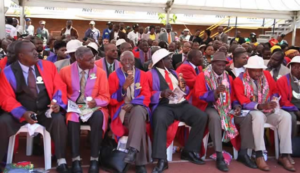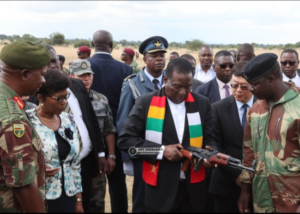THE UNCONSTITUTIONAL DETENTION OF A VOICE FOR THE VOICELESS
In the heart of Zimbabwe, a distressing narrative unfolds – the unconstitutional detention of a dedicated opposition lawmaker, a champion of his people, now silenced by the chains of injustice. This unjust imprisonment not only robs his constituents of their legitimate representation in a parliament marred by alleged electoral manipulations but also mirrors a broader assault on the liberties and freedoms of every Zimbabwean citizen.
The arrest of this firebrand representative, elected by the people to voice their concerns and aspirations, stands as a glaring testament to the erosion of democratic principles. It is a wake-up call, a siren in the night, for those who still believe in the sanctity of constitutional rights. The very judiciary, which should serve as a bulwark against state tyranny and protect the citizens from authoritarian overreach, appears compromised and entangled in the web of political machinations.
This judiciary, ideally an independent entity, safeguarding the balance of power between the branches of government, seems to have veered from its righteous path. It now appears to be an instrument in the hands of an executive, described by critics as composed of self-serving individuals, accused of plundering national resources and neglecting the welfare of the people. This critical institution, rather than upholding justice, is perceived as being at the forefront of a political battle waged on behalf of those in power.
The plight of the incarcerated lawmaker is not just a personal tragedy but a symbol of a broader crisis. If the judiciary, alleged to be biased and politically influenced, can target an elected official, then the ordinary citizen stands vulnerable. This case sets a dangerous precedent, underscoring a grim reality: In the face of a state perceived as paralyzed and corrupt, no one is safe.
The continued detention of this opposition figure is indicative of a deeper malaise. It points to a disturbing shift from the rule of law to a ‘rule by law’ – where laws are seemingly manipulated to serve the interests of those in power, rather than protect the rights of the people. Transparency, accountability, and justice, the cornerstones of a democratic society, appear to be exiled in this new order.
This situation is a stark reminder of the pivotal role of a fair and independent judiciary in safeguarding democracy. It challenges us to reflect on the kind of governance we desire – one that rules with an iron fist or one that governs with a sense of responsibility and adherence to constitutional values.
As Zimbabwe navigates these turbulent waters, the case of this detained lawmaker should not be seen in isolation. It is a microcosm of the larger struggle for democratic governance, transparency, and respect for human rights. The opposition, rejuvenated and determined, stands as a beacon of hope, advocating for governance that respects the rule of law, prioritizes the welfare of the oppressed, and remains accountable to the people.
In this defining moment, it is crucial for the citizens of Zimbabwe to stand united in their quest for justice and democratic governance. The path ahead may be fraught with challenges, but the pursuit of a just and equitable society is a journey worth undertaking.



